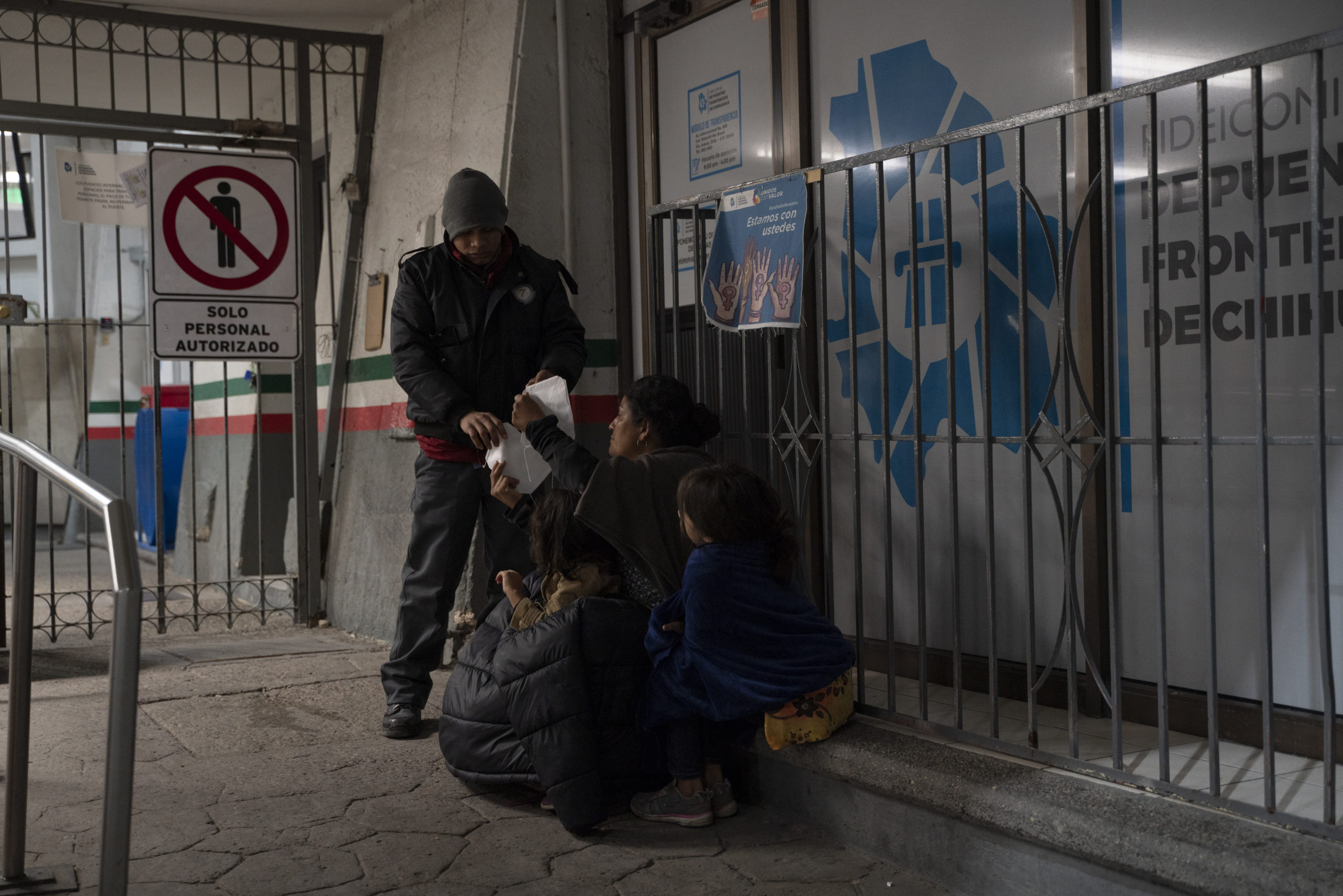City officials in Ciudad Juárez, Mexico, say an estimated 15,000 migrants are filling up shelters or sleeping on the streets as they await the end of Trump-era pandemic border restrictions known as Title 42, which is scheduled to lift Monday but has been challenged in court in a lawsuit from more than 20 states seeking to block the Biden administration from ending it.
The anticipation of folks wanting to seek asylum has been draining resources on the southern side of the border, while those on the U.S. side – like Ruben Garcia, director of Annunciation House Shelter in El Paso and its network of 15 shelters in the area – prepare for an influx of border crossings.
» What to know about Title 42, the Trump-era policy now central to the border debate
Garcia spoke with the Texas Standard about what an end to Title 42 would mean for El Paso next week.
This transcript has been edited lightly for clarity:
Texas Standard: In the days leading up to the end of Title 42, what’s the situation on the ground in El Paso? What resources are in shortest supply, and how are you preparing?
Ruben Garcia: Well, first of all, I think it’s important to understand that even in the absence of the lifting of Title 42, we have already seen an increase in the number of refugees that are being released to our network of hospitality sites. We are now in the 400 to 500 per day number of of individuals that are being released, a majority of them family units, but also single individuals.
And that number is limited by our capacity; if we could receive more than 400 or 500 per day, if we could receive 600, 700 per day, they would be releasing that number. Because our hospitality network was unable to receive the full number on this past Sunday, 119 individuals were released to the street here in El Paso.
Where are those migrants staying, then, if they can’t come to you because beds are full? Where are they going?
Well, once released, they basically have to navigate for themselves. Now, the one good thing about the releases on Sunday is that they were all single individuals, so there were no families that were released to the street on Sunday. So it’s easier for a 25- or 30-year-old individual male or individual female to navigate for themselves than it is for a parent that is having to resolve where they’re going to sleep if they have children. So this is a reality right now.
What are you looking at then, come Monday?
We called upon both the city and county of El Paso, as well as the federal government, to open up hospitality sites, because it’s going to clearly overwhelm the capacity of the [non-governmental organizations] networks. And when I refer to a network, it’s primarily churches – churches that make use of their parish hall, their classrooms, etc. And they decide that certain days of the week they are able to receive refugees and host them and assist them then to move on to family within the U.S.
So we’re calling on the federal government to open up space, but we’re also calling on the city and county to open up space to complement what the NGO network is able to bring to the table. It’s our belief that this is a three-pronged approach to dealing with with a lifting of Title 42. And if all three play their part – all three will bring beds, cots to the table – I believe that’s how we’re going to handle Title 42.
What’s the worst-case scenario that you’re clearly fearing?
Well, obviously, any single individual refugee having to sleep on the street is a worst-case scenario. We would absolutely hate to see that multiplied by hundreds more. The very sad part about all of this is that from the very beginning, the Biden administration was aware that the day was going to come when Title 42 was going to have to be dealt with. So there’s been almost a year and a half to prepare.
And we still are not sure that Title 42 is going to go away. There’s a lot of reason to believe that it may not get lifted on Monday; there’s actually a federal court injunction in place right now. But there’s been plenty of time to prepare. And so I don’t think it’s acceptable for us to say, ‘you know, we’re not ready’ – that just can’t be acceptable. We have to be ready, pure and simple. We have to be ready.














